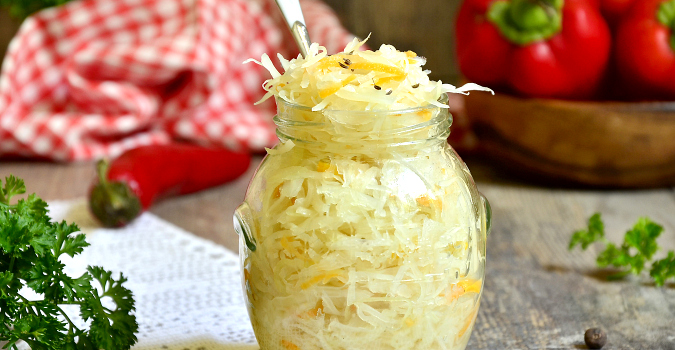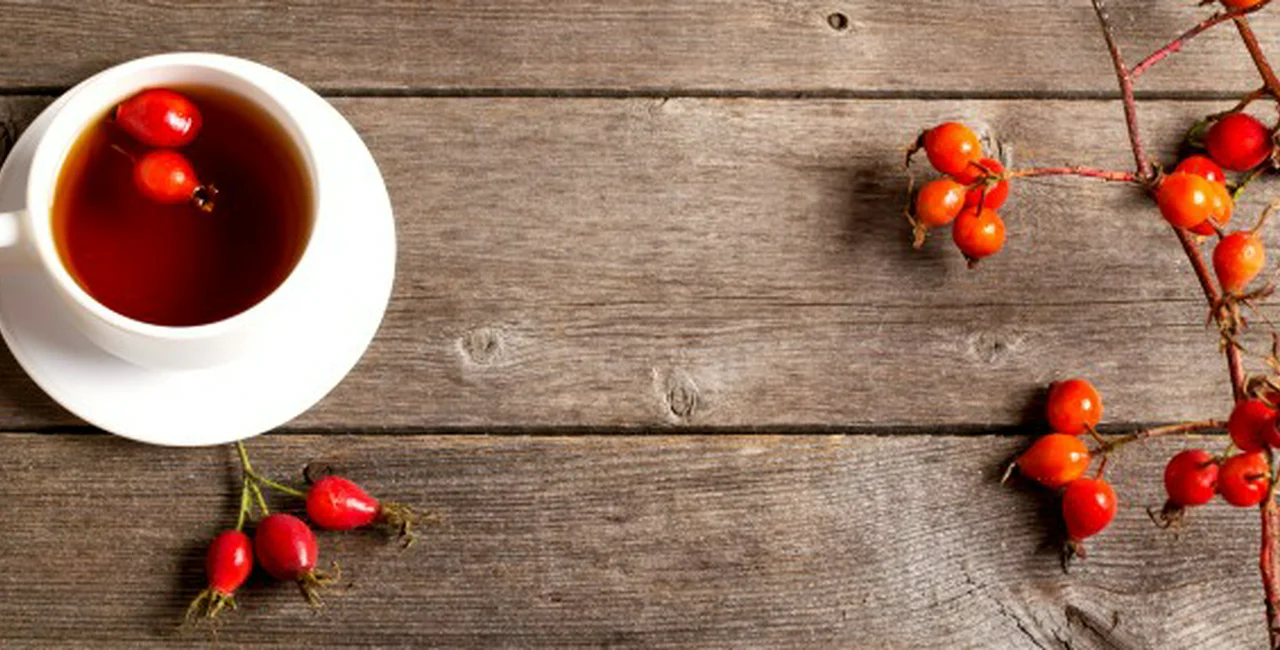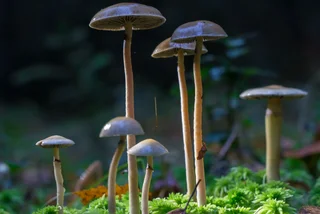Czech grandmothers didn’t have it easy. They were country girls who worked outside all day long and didn’t have much money or time.They used what was at hand: common foods and household products, things they could grow in their gardens or find in the fields and forests. Their secret was an arsenal of information: tried and true beauty tips tested and handed down through generations. Here are a few natural remedies that have come down through the ages.
Smooth dry skin, erase scars with lard
Surely you’ve encountered the lard sandwich: a thick slice of dark bread, spread liberally with a half-inch-thick layer of lard (sadlo) and sprinkled with salt. Who would think that the same white goo would also be good for your scaly skin or could be used as a night cream? It is also often recommended for scar healing due to its similarity to human fat. Go into any Czech pharmacy and ask for a scar healing substance and the first thing you will hear is: Have you tried lard?
Marigold-lard cream:
Heat a ½ kilo of lard in a small saucepan, add 4 large handfuls of marigold flowers, bring to a quick boil and remove from heat. Let cool overnight, then melt lard again (don’t boil it) and strain through a fine sieve and refrigerate. This cream is good for frostbite, burns, small scratches and cuts and athlete’s foot.
Rose hip to prevent illness
Those pretty red fruit on those vicious thorny bushes that grow along country lanes are full of vitamin C. Dry them and drink the tea all winter to prevent colds – just don’t boil them; it destroys the vitamin content. Let them steep in cold water overnight and heat to 80 degrees Celsius in the morning.
Give your cold an onion tonic

After a strong does of garlic soup, Czechs swear by onion as a cough syrup and decongestant. To make it, peel and slice an onion. Using a jar with a lid that fits the onion almost exactly, fill the jars with a layer of onion, layer of granulated sugar, layer of onion, etc. until it’s full. Cover and let stand overnight. Take up to 3 tablespoons of the liquid produced a day until your illness is gone.
Pack potatoes on puffy eyes
The potato is a staple of Czech cuisine, but who would look for it in the medicine chest? Cover swollen eyes with a rag soaked in potato juice or two potato-blob kerchiefs (see below) and lay on your back for 30 minutes. When you get up, no one will know you’d been crying/carousing all night.
How to make a potato-blob:
Grate no more than half a potato onto a clean cloth napkin or handkerchief, twist until it’s quite damp and dab your face with it. (Use a fresh potato each time; they oxidize and turn black – ick!) Let dry for 30 minutes (if you feel like your face is cracking, it’s working) then rinse with lukewarm water.
Use chamomile to soothe rashes
It’s the Czech grandmothers’ panacea. Used for everything from soothing rashes to disinfectant for cuts, the strong tea used as a rinse bleaches blond hair. Don’t boil it: let it steep for 10 to 15 minutes and use it warm. (My mother used chamomile for all my childhood scrapes and cuts – even the deep ones: they all healed without a scar.)
Pick nettle for a achy bones, hangover
Known by its sting, nettle grows at the edge of every field and country road. Grandmothers drank nettle tea for a month every spring “to cleanse the blood” and switched themselves with the freshly cut plant to treat arthritis. This tea is also a detox remedy after a long night, or if you feel a cold coming on. It’s excellent for the hair, too: Pour 5 liters of water over five big handfuls of dried nettle leaves (fresh ones leave a greenish tint) and bring to a boil for five minutes. Let steep for another five, then strain and use as a hair rinse.
Thyme to kill bad breath
Tea made from this small-leaved plant with purple flowers is great for acne and oily skin. Gargling with it prevents bad breath and heals sensitive gums. It also soothes the tummy after a heavy meal.
Brighten dull hair and skin with coffee
Back in Grandmothers’ day, good ground “Turkish” coffee was too precious to “waste” on mere vanity, but what about that black stuff on the bottom of the cup? Well, you can use it as a darkening hair rinse: rub it into dry hair, wrap in saran wrap (or a plastic bag) and towel, wait 20 minutes and rinse with warm water. For a thorough skin peel, mix it with egg white, rub onto face, let dry and rinse with lukewarm water. Coffee grounds are pretty sharp, so I wouldn’t use this on my face again. But it is a great exfoliator for legs – just don’t forget to follow up with you-know-what or a rich cream to hydrate.
Bolster good bacteria with cabbage
PARTNER ARTICLE

Both fermented cabbage juice and sauerkraut are said to fight acne and are good disinfectants, but more importantly are packed with vitamin C and probiotic power that helps boost healthy bacteria and may even have cancer-fighting properties. To maintain sauerkraut’s health benefits just don’t frequently combine with vepřo-knedlo!
Other natural ingredients said to work wonders:
Buttermilk
Great for dry, sensitive skin. Use it mixed with chopped parsley in a face mask for dry skin and wrinkle protection, as a makeup remover, or as a soothing balm after a sunburn.
Honey
Honey Known as a disinfectant and preservative since ancient times, honey is often used in masks to cleanse and hydrate. Apply in a mask every day for a week for acne or apply a mask of honey and cucumber to face and décolletage to prevent wrinkles. To lose weight, drink two teaspoons of honey mixed with a half teaspoon of cinnamon in hot water half an hour before breakfast or bedtime – the catch is you must eat breakfast. Beeswax is very good for removing nicotine stains from teeth.
And, of course…beer
Thanks to a high content of vitamin B, drinking beer is good for hair, skin and nails. It also contains the same amount of antioxidants as wine, so drink up! In a pinch, beer is a good hair rinse or stiffener. (Don’t be afraid of the smell – it fades quickly.)
**
What are the strangest Czech remedies you’ve heard of?












 Reading time: 5 minutes
Reading time: 5 minutes 




















